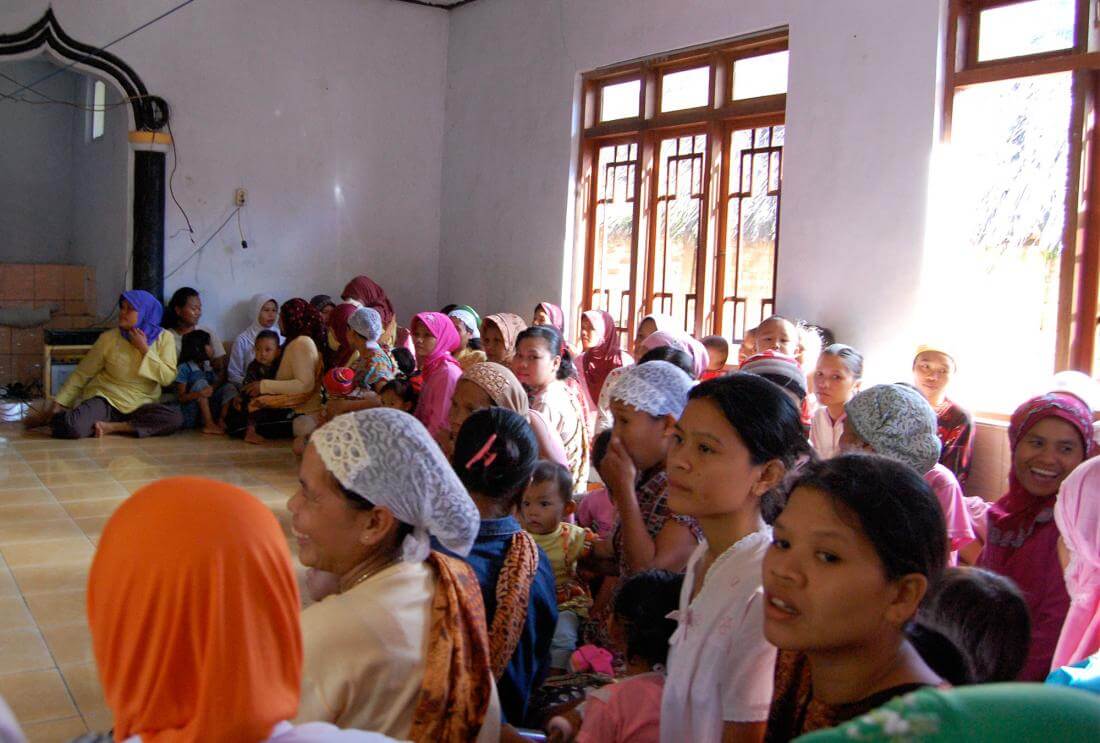Indonesian rights groups have accused Malaysian immigration authorities of gross mistreatment after releasing a report detailing the deaths of 149 Indonesian citizens in Malaysian detention facilities over the past 18 months.
In a report called “Like in Hell: The Conditions of Immigration Detainment Centers in Sabah, Malaysia,” several Indonesian NGOs accused Kuala Lumpur of “a gross lack of concern” for the health of detainees in detention centres in the state of Sabah, saying they are being subjected to inhumane living conditions.
The report stated that up to 260 people, including children, have been forcefully made to live in cramped “windowless cells about the size of a badminton court, equipped with just three toilet bowls.” Moreover, no bedding is provided and each prisoner is forced to sleep “on a rough floor,” which they sometimes covered with a cardboard base. “Prisoners sleep with the condition of each other squeezed. While lying down, their feet would touch the heads of other prisoners beneath them. In block 9 DTI Tawau, several prisoners were forced to sleep on the toilet,” the report revealed.
NGOs and rights groups have leveled accusations against Malaysia for subjecting Indonesian illegal migrants to inhumane living conditions in Sabah detention centers, where 149 have died since January 2021.#MashableSEA #Indonesia #Malaysia #HumanRights pic.twitter.com/H79aQS4jrU
— Mashable Southeast Asia (@MashableSEA) June 28, 2022
Abu Mufakhir, an activist with Koalisi Migran Buruh Berdaulat, or Coalition of Sovereign Migrant Workers, which prepared the report, also highlighted the particular case of a detainee in his 40s with Down Syndrome who was left to die by detention centre authorities. The detainee, named Nathan, was offered no medical care despite having been visibly sick for an extended period. Nathan eventually died at the Tawau facility in March; the cause of his death was omitted from his death certificate.
Abu went on to add that 6% of detainees have died. “This is not something that can happen in a normal setting. No clean water, the food is atrocious, how can people not die when they only get two to three hours of sleep a day?” he asserted.
Malaysia’s Home Ministry, which oversees the immigration department and its operations, has since 2019 barred outside access to the country’s detention centres, including to the United Nations’ refugee agency https://t.co/wRz2zAjNGm
— Max Walden (@maxwalden_) June 28, 2022
18 deaths were reported at the detention facility in Tawau between just January and March of this year, with the report stating that Indonesian migrant worker deaths in the five immigration detention camps in Sabah are “continuous.” It thus speculated that the true death toll is likely much higher.
The report further stated that the high mortality rate goes to show that Malaysian authorities “intentionally and continuously do not meet proper health standards.” It went on to warn that such brutal living conditions “will continue to endanger the safety of all immigration detainees and even put them at risk of death.” “This can only be prevented if the poor conditions in immigration detention centres are corrected, violations of health standards and principles in detention centres are corrected and inhumane treatment is stopped,” the report suggested.
Malaysia’s immigration detention centres are literal blackholes. Since 2019, under then Home Minister Muhyiddin Yassin, UNHCR have not had access to these depots.
— Hadi Azmi (@amerhadiazmi) June 28, 2022
The government also ignored requests from the UN Special Rapporteur during his visit last week.
Dinda Nuur Annisaa Yura, an activist from Women’s Solidarity, said the poor treatment of detainees bears similarities to colonial-era attitudes, wherein detainees were “dominated”. “From here we see a paradigm, a perspective that does not see these detainees as humans,” Dinda said.
The Malaysian government has refused to acknowledge the allegations. In fact, the country’s Home Ministry has banned access to the country’s detention centres, including to the United Nations Human Rights Council (UNHCR), the United Nations’ refugee agency. Commenting on this, Tom Andrews, the UN Special Rapporteur for Myanmar, said about his recent visit to the country that he was “deeply concerned” about reports of hundreds of children being detained in such facilities, “including child victims of trafficking.” “Children should never be placed in migration detention facilities,” he said.

